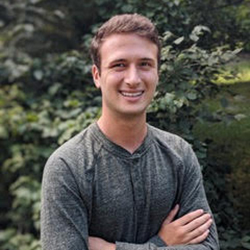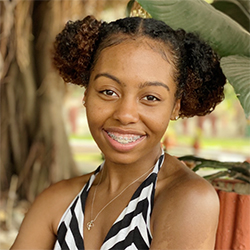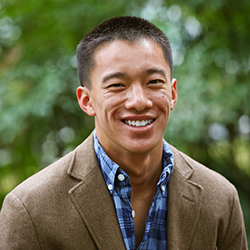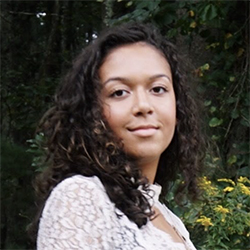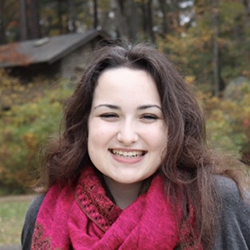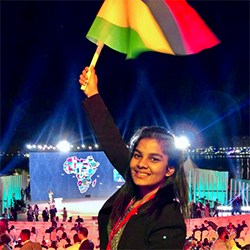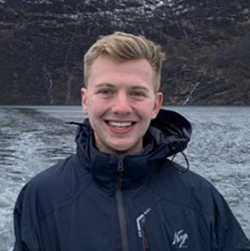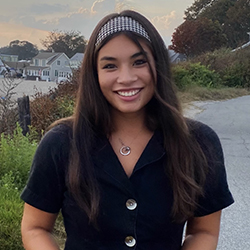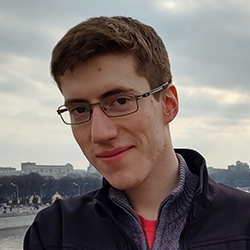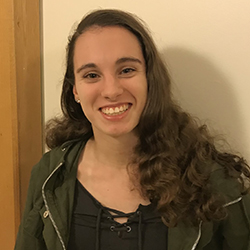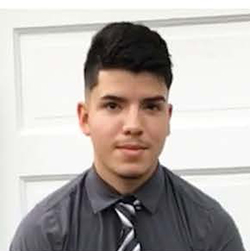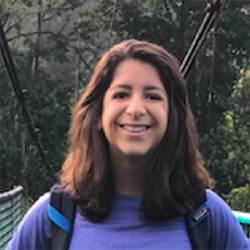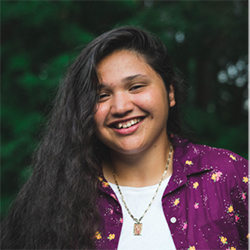
Stephanie Martinez ’21
Beyond the Ballot Box: Latinx Political Participation
Stephanie, a first-generation college student and first-generation American, vividly remembers the first transformative moment in her education at Conn: participating as a first-year in a student-organized protest in support of DACA, an immigration policy that allows some undocumented immigrants brought to the U.S. as children to receive deferred action from deportation.
“This was crucial in my conception of political participation beyond voting,” Stephanie said. “As I work on my on-going research, I find myself going back to that day and thinking about how it has influenced my entire undergraduate career.”
A government major and history minor, Stephanie joined the Holleran Center for Community Action in order to apply her major and minor to her interest in Latinx politics in the United States. As a sophomore, she worked with New London’s Homeless Hospitality Center and learned about the administrative side of nonprofit work. As a junior, she was involved with a local Mayoral political campaign in New London, worked with the League of Women Voters of Southeastern Connecticut, and was a student representative for CamelVotes at the NESCAC Votes conference. She also studied away at Amherst College, taking political courses on Latinx lives and political ethnography.
Stephanie is now working on an honor’s thesis investigating the different methods of political participation among Latinx college students. At the All-College Symposium, she explained her methodology and goals, as well as how she is situating her research within existing literature.
“I hope the audience thinks about different ways we can think about the health of our democracy,” she said.
After graduation, Stephanie, a Mellon Mays Undergraduate Fellow at Conn, plans to pursue a Ph.D. in American government.
